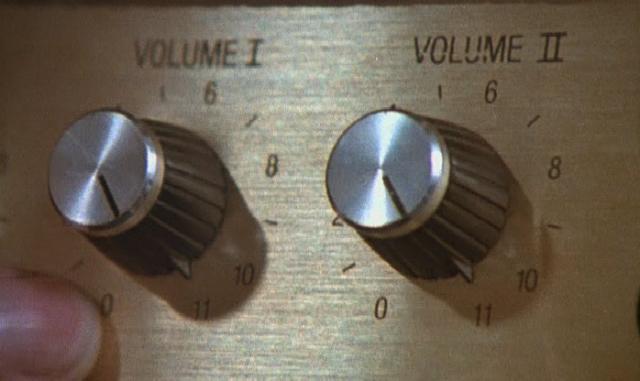Both This Is Spinal Tap and Repo Man are cult films that make fun of a rock youth culture, metal and punk respectively.
Repo Man is the better of the two (again, my original listing of the best pop music films is chronological , not in terms of quality).
One reason is that while This is Spinal Tap made a breakthrough in establishing the “mock-umentary” genre, we’re now pretty used to that. And since one of the main things the film wants to illustrate is how a lot of the music-biz folks are pretentious talkers apt to inflate the importance of a moronic band like Spinal Tap, and since this must be done realistically, we actually have to suffer through a good deal of banality in between the humorous bits. As an entirety, it begins to drag . . . especially if you’ve seen it before, or if you think a show like The Office gets tiresome. Still, it felt very fresh at the time, and no-one can deny the classic status of its best bits.

I do have one question, though. Did the film contribute anything to the eventual demise, or stylistic alteration, of classic 70s through 80s hair-band metal? Or was that really due to Jane’s Addiction, Metallica, Nirvana, and the likes of Dewey Finn bringing alternative elements to the metal set? In other words, at some level, did the film gradually shame metal-heads into changing their ways?
I ask this because I was a teenager when the film came out, and the response to it was one of my first lessons about the limits of satire.
You see, unlike a number of my high school friends, I had deliberately broken away from heavy metal, for “new wave” and such. I recall looking at one of my three Judas Priest albums, and saying to myself, “This is all about a sick power fantasy. I’m done with this. Right now, it’s so familiar that I still feel some of its pull, but I’m going to tear myself away.” (I don’t recall if I had the humility to admit that my 13-year old Christian hesitations to buy a record with a satanic name had turned out wiser than my later sophistication to go ahead and do so.) The point of this is that the aesthetic and moral status of heavy metal mattered to me in a personal way, and I naively thought that when my doggedly metal-loving friends saw This Is Spinal Tap , they would have to admit my way of thinking, or at least feel the sting of the film’s criticism.
What happened is that they embraced the film, and luxuriated in the irony of doing so. One of them bought the soundtrack, and they’d actually play songs like “Big Bottoms, My Gal’s Got ‘Em” for their own enjoyment!
A precursor there of the “Beavis and Butthead” phenomenon, whereby a show that mocked moronic tube-glued metal heads would often tend to train its regular viewers into actually talking like them.
I guess for that reason, the film is ultimately kind of depressing, and not just for being about a band whose career is failing. You are forced to admit that yes, our pop culture has been so bad, that THIS counts as an accurate satire of part of it. THIS is who we’ve been. We in some way deserve to have those spandex images and those crummy songs burned onto our memory.
And, it probably won’t change anything.
Or was I wrong about that?




